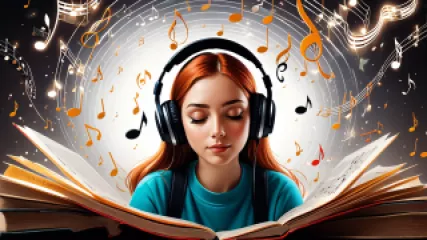Exploring the Psychology of Music Through Fictional Narratives
Introduction
Music has a profound impact on our emotions and mental well-being. It has the power to transport us to different emotional states, evoke memories, and even promote healing. The psychology of music is a fascinating field that explores the intricate relationship between music and the human mind. While scientific studies provide valuable insights into this connection, there are also other avenues to explore the psychology of music. One such avenue is through fictional narratives found in books and movies. By delving into the stories and characters depicted in these works, we can gain a deeper understanding of the profound effects that music can have on our lives.
The Power of Music in Fictional Narratives
Fictional narratives often use music as a powerful tool to convey emotions, enhance storytelling, and develop characters. From novels to films, music plays a vital role in creating atmosphere, setting the mood, and immersing the audience in the narrative. By examining how music is used in these narratives, we can uncover important insights into the psychological aspects of music.
1. Music as an Emotional Catalyst
In many fictional narratives, music serves as a catalyst for emotional experiences. It has the ability to stir up feelings of joy, sadness, anger, or nostalgia within both the characters and the audience. Through the use of carefully selected songs or melodies, authors and filmmakers can elicit specific emotional responses and deepen the connection between the audience and the story.
"As the haunting melody filled the room, the protagonist felt a surge of melancholy wash over him. The bittersweet notes seemed to encapsulate the pain and longing he had suppressed for so long."
Excerpt from a fictional novel
By analyzing these instances, we can gain insight into how certain musical elements, such as tempo, key, and lyrics, can evoke specific emotions in individuals. This understanding can be applied to our own lives, enabling us to curate personal playlists that help us navigate and process our emotions.
2. Music as a Therapeutic Tool
Fictional narratives often depict music as a therapeutic tool, capable of healing emotional wounds and promoting personal growth. Characters find solace, express their innermost feelings, and find meaning in their lives through music. These stories highlight the potential therapeutic benefits of music in real-life situations.
"The protagonist found comfort in the gentle melodies of the piano. Each stroke of the keys seemed to alleviate the weight of his burdens, providing him with a sense of inner peace he had longed for."
Excerpt from a fictional novel
Examining these narratives can inspire us to explore the therapeutic effects of music in our own lives. Whether it's playing an instrument, singing, or simply listening to our favorite songs, incorporating music into our self-care routines can have a profound impact on our mental well-being.
Learning from Fictional Narratives
While fictional narratives may not provide scientific evidence, they offer valuable perspectives and storytelling devices that can enhance our understanding of the psychology of music. By immersing ourselves in these stories, we can gain new insights and apply them to our own lives.
1. Exploring Music and Emotions
Fictional narratives often present vivid descriptions of how music impacts characters' emotions. By analyzing these portrayals, we can learn more about the intricate relationship between music and our emotional states. We can begin to identify patterns, understand the factors that influence emotional responses to music, and expand our emotional repertoire.
2. Embracing Therapeutic Music
Through fictional narratives, we can discover the power of therapeutic music and how it can be integrated into our daily lives. Whether it's creating a playlist for relaxation or turning to music during challenging times, these stories can inspire us to explore the healing potential of music.
3. Music as a Form of Self-Care
Fictional narratives often depict characters using music as a form of self-care. By observing these examples, we can learn how to incorporate music into our own self-care routines. Whether it's setting aside time to listen to our favorite songs or engaging in musical activities, embracing music as a self-care tool can enhance our overall well-being.
Conclusion
The psychology of music is a vast field that encompasses various aspects of human emotions and well-being. By exploring fictional narratives, we can gain unique perspectives on the profound effects of music on our lives. These narratives offer insights into how music influences emotions, its therapeutic potential, and its role in self-care. By applying these lessons to our own lives, we can deepen our appreciation for music's impact on our mental health and well-being.






